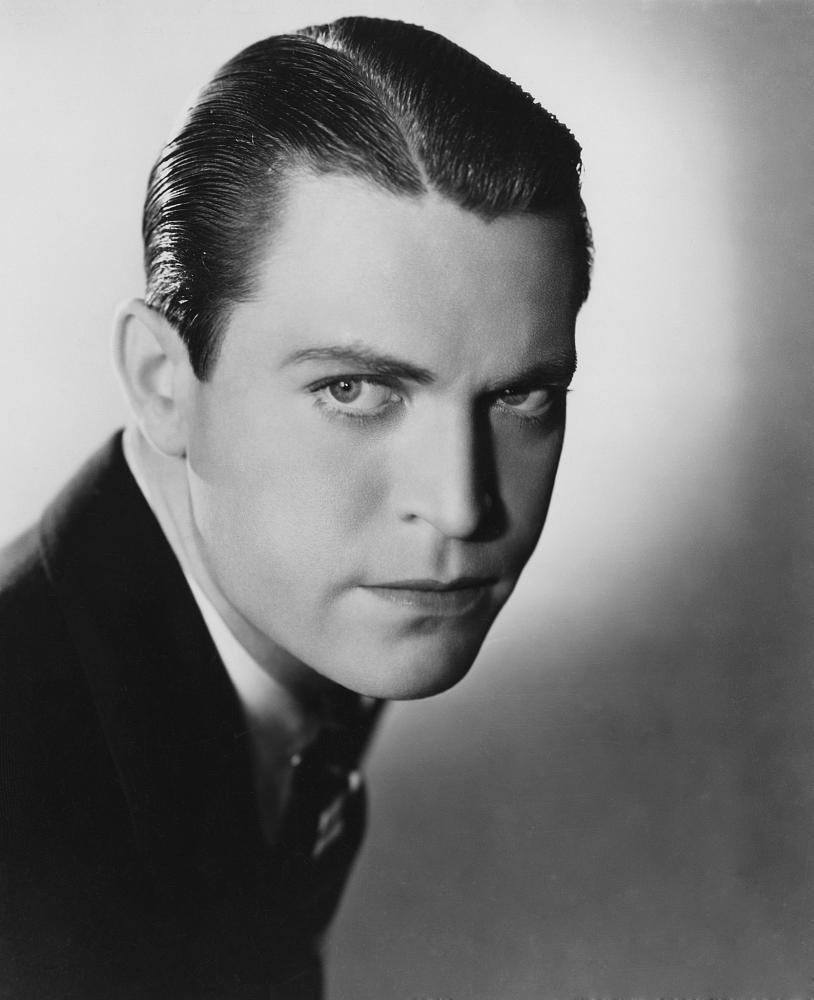
'“A Tough Guy, Eh?”
We tolerate Chester Morris. I don’t know that we love him.
Part of the problem is that the golden age of pre-code cinema for Morris is also the golden age for Jimmy Cagney, William Powell, Warren William, actors who sparkle with wit, agility, charm, energy, qualities poor Chester can approximate but never truly own. At this time, Clark Gable is not yet King of Hollywood, but he’s got something: a kind of gangling, lupine, on-the-make gusto. Bogart’s glory days are still ahead of him too, but at least they arrived: Morris sank further into B-movie territory, and not even good B’s, mostly. Have you ever tried to watch one of those Boston Blackie films? They had Robert Florey, Edward Dmytryk, and Budd Boetticher as directors, but any charm or personality those luminaries channelled towards the films got sucked down the Morris charisma funnel. Latterly, Boston Blackie was all that Morris did, and he wasn’t even very good at it.
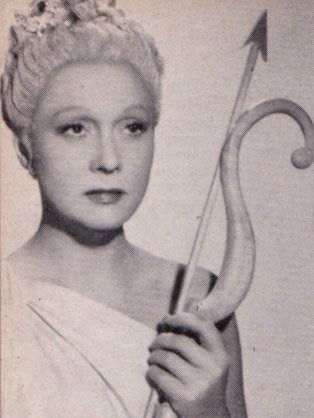
Homage to the Gods (and Their Offspring)
Children of Paradise (Les Enfants du Paradis) has a strange, convoluted production history, and a somewhat strange history with me personally.
Directed by Marcel Carné in 1943-44 in occupied France—actually, under the Vichy puppet government—it was the victim of German and Vichy antagonism, bureaucratic limitations, anti-Semitic laws, natural disasters and, as a result, protracted delays in production.
Exactly how Carné and company could put together a 19th-centuiry costume drama involving 1,800 extras and running twice as long as “permitted” by Vichy dictat has never been totally clear. How amazing, then, that it emerged as one of the monuments of movie-making.
The first time I saw Children of Paradise I hated it. I sat bored for two hours in the auditorium of the University of Pennsylvania Museum of Anthropology and Archaeology watching a disconnected bunch of declamatory larruping about actors and mimes in 1830s Paris. So why on earth did I go back to see the uncut version, running over three hours? It defies justification, but I thank my peculiar instinct, because I’m a better person for it.
The original version runs 190 minutes, and it builds emotionally during every minute. Despite the lavish setting, it is wholly a movie of character, detailing every form of human interaction imaginable. As a wracking document of love and obsession, it has no equal I know of.
The milieu is the theater district of Paris in the1830s, especially the Funambules theater along the “Boulevard du Crime,” where pickpockets and conmen ply their trade amongst the pulsating throngs. “Paradise” refers to “the gods,” the high, cheap seats of the lower classes, to which the actors, their children, paid theatrical homage.
Supposedly, the incident that inspired the story line was the bludgeoning of an old-clothes seller by a mime, an inexplicable act that Carné and screenwriter Jacques Prévert hoped to illuminate. To do that….
Garance (“comme la fleur”), played by the single-named Arletty, floats through life on a raft of boredom, blown by some unattainability within, magnetizing men in part through her beauty, but more through the unfathomable mystery of who she is and why. She becomes the focus of a convoluted love pentangle, sought, semi-possessed, but never won by four men:
Baptiste the mime (Jean-Louis Barrault), unfaltering in his adoration, which is returned by Garance in equal measure—but at an agonizing distance.
Frédérick Lemaître the actor, who takes her body as lover for a time but can never reach her soul.
Comte Édouard de Montray, a loathsome aristocrat who uses his position to ensnare Garance as his mistress.
Lacenaire, the brilliant, egomaniacal criminal entrepreneur, a man without scruples yet an odd, undeviating honesty of person.
Baptiste, Lemaître and Lacenaire were historical figures. Montray was closely based on another. Though all that is hardly important. What gives the movie its extraordinary depth is that these four characters (along with Garance) embrace virtually every human emotion, motivation, and range of moral and ethical involvement.
Starting with the most admirable, Baptiste loves Garance with a passion that almost devours him, yet he treats both his rivals and Nathalie, his wife, with a consideration that is almost as lethal to him as his devotion to Garance.
Lemaître is driven by ambition that enflames and ennobles his acting even as it blinds him to his own limitations. He and Baptiste remain true to each other; when, at last, Lemaître realizes that he has no hope of overcoming Garance’s love for Baptiste, he thanks Baptiste because, “Now I can play Othello.”
Montray, arrogant as much by nature as position, feels no compunction in using Garance for his own ends. The acme of upperclass worthlessness, he deems whatever he does right simply because he does it.
Lacenaire: Ah, Lacenaire is one of the most remarkable characters ever put on film. A boundless cynic with no moral base, he treats crime as a commodity, openly boasting that no one outside himself matters, no one influences his actions or limits his reach. All of humanity is open to his grasp, and he refuses pointblank to deal on any terms but his own. Challenged to a duel by Montray, he answers, “Absolutement pas!” for only he will choose the time and place to administer justice. He could easily be branded a sociopath, and yet… while perhaps fully believing his denial, he loves Garance as tormentedly as the others, and he it is who gives his life for her, stabbing Montray in a Turkish bath, then calmly waiting for arrest and the guillotine.
Carné proves himself an actors’ director, for each of these conflicted, tortured souls is fully inhabited:
Arletty as Garance is letter-perfect. Never flirting, seldom fully engaged, making no effort to attain what she gains so easily but does not value, she smiles with easy grace but seems neither content nor disillusioned. She knows instinctively that whatever it is she might want cannot be had. The world washes over her but never cleanses.
Barrault’s Baptiste radiates an unforgettable beauty—small, slim, tight as a watchspring offstage, as the mime he projects a sinuous delicacy that avoids the maudlin (of the same school as Marcel Marceau, he projects Marcel’s simple grace, economy of movement and unerring choice of telling detail, without, as was too often the case with Marceau, that underlying whiff of the effete).
Pierre Brasseur keeps Lemaître charming even when most self-involved, a rake with blunted teeth who wallows in his own emotions, from the sublime to the mawkish. The perfect loose companion, yet the worst sort of cohabiter.
Lacenaire could not have been realized without the eviscerating intensity of Marcel Herrand. Never does this magnificently coifed symbol of inhumanity step outside his self-concern, yet the something—that something underneath still radiates.
Everything rests on the superb screenplay by Prévert. Both before and after, he collaborated on several films with Carné, but this was his culmination. The dialogue, like the filming itself, is a distillation of emotions. The characters claw at each other’s innards—though far more often at their own—without descending into melodrama. They speak from the heart even when taking the greatest pains to disguise their spirit.
I have the English translation of the full screenplay from 1967, part of a wonderful series of “Classic Film Scripts” put out by Simon and Schuster and, like everything else, now out of print. It includes every word of the final version, including those scenes cut in editing. What amazes me: No matter how simple or complicated the scene, the decision to cut was correct. The very last scene to be removed, during the wrenching ending, was the death of the ragman that had set the script in motion.
Is this my favorite movie of all time? Yes. Close second in the “epic” realm: Seven Samurai. I’m sure it’s hard to imagine how a three-hour movie can be the epitome of tight, cut-to-the-bone editing, but I think that’s the case with Children of Paradise.
by Derek Davis

The Cruller
I had a date but I was much too early. There was a coffee shop across the street where I could sit at a counter and have a cup of coffee.

Love Bug
Filmmaker and film fan Jean-Pierre Melville, with his thick accent, pronounced the name Fronk McHyoog. Which somehow feels right.

A Dream
After a long walk I find myself in a third class compartment, where there are other travelers I can barely make out. Just as I’m about to fall asleep I notice that the regular jolts of the train are chanting a word, always the same one, and which is more or less “Adéphaude.” The “adéphaude” is a precious yellow stone that I see sitting in the mesh bag next to a poorly wrapped package, enveloped in wrapping fabric with a railroad label on it bearing the inscription “Rhodes 1415,” which I am convinced is an error. It is impossible for me to place the battle in question despite the basket weavers I question one after the other along the interminable marsh I am crossing with the air of a vagabond. I have arrived at a second class wagon. I sardonically make the observation that there are now in the mesh bag two packages bearing the mention “Rhodes no date.” At that moment I notice in the opposite corner a young woman who is speaking agitatedly to a companion who is at first invisible and who could be me, or some distant relative of a certain Lady Carnegie who I think I knew when I was young. The young lady is dressed with great elegance. I am only able to make out a few words of conversation: “…lacking lacquer…” It is obviously a question of the packages which, in fact, look extraordinarily scaly. I turn my eyes towards the lady’s interlocutor and I see that he is covered in armor, which completely hides him. I stand up, indignant. At my feet are the remains of a cold meal. The lady wipes her hands with a lace handkerchief. We are in the middle of the countryside, near an embankment. It’s the evening of the battle of Marignan.
by Louis Aragon
La Révolution Surréaliste, 3 yr, No. 9-10, October 1927
Translated by Mitchell Abidor
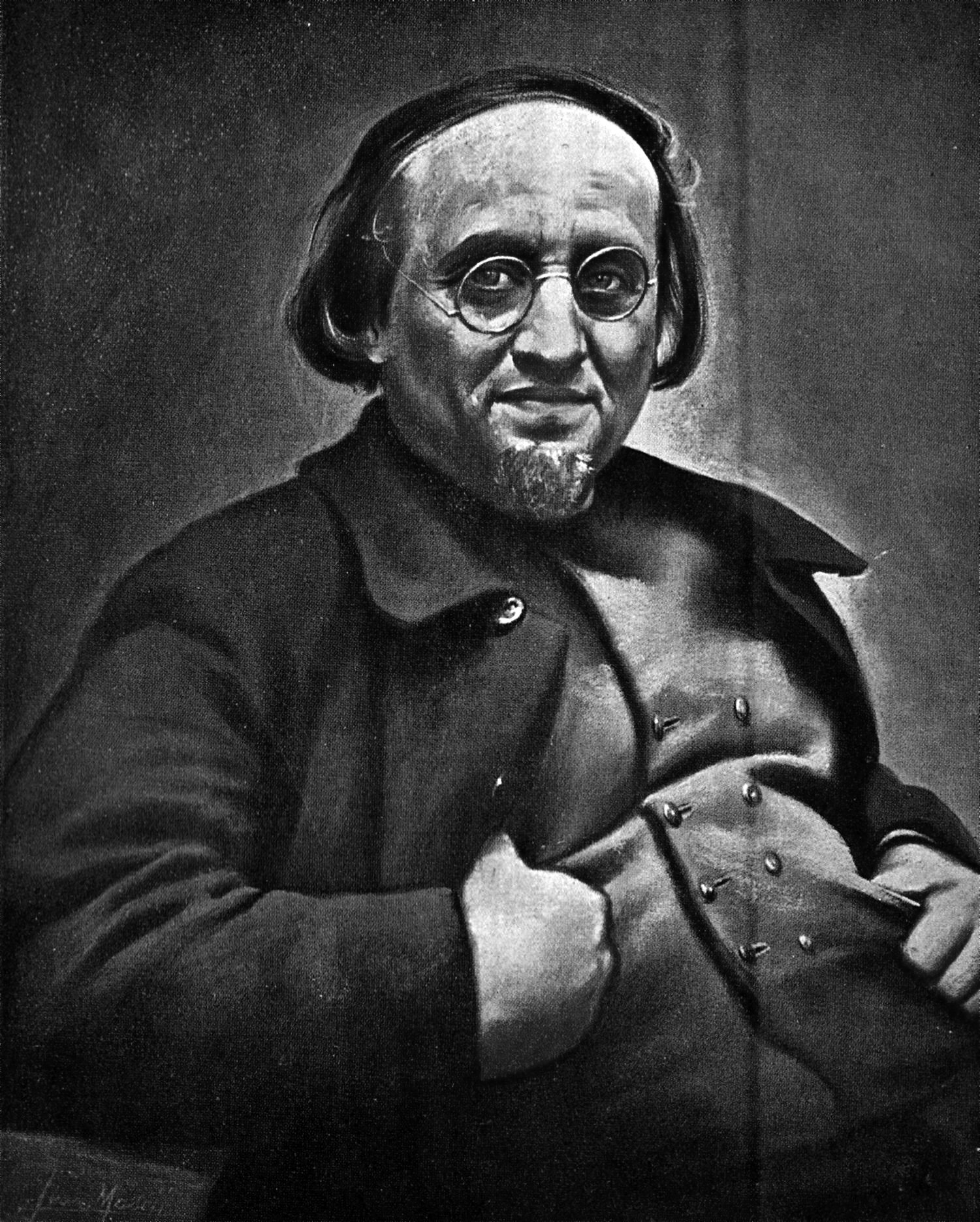
What is an Anarchist?
A chaos of beings, of acts and ideas; a disordered, bitter, merciless struggle; a perpetual lie, a blindly spinning wheel, one day placing someone at the pinnacle, and the next day crushing him: these are just a few of the images that depict current society, if it were possible for it to be depicted. The brush of the greatest of painters and the pen of the greatest of writers would splinter like glass if we were to employ them to express even a distant echo of the tumult and melee that the is depicted by the clash of appetites, aspirations, hatreds and devotions that collide and mix together the different categories among which men are parceled out.

NAFTA
Dear Daniel – As to citing NAFTA as one of Bill Clinton’s accomplishments: shortly after it was passed I was down in Chihuahua, my wife’s home town, and her rich relatives were all licking their chops in anticipation of making millions. When I ventured to express a mild skepticism these charmingly polite people were suspicious that my wife had married a Communist.
One of the many results of NAFTA was to drive the small Mexican farmer off his land (Milpa) and the Ejidos, communal farms which go back before the Conquest, by flooding the market with cheap subsidized American corn. Now when they are starving and have no recourse but to try to get into the States, we brutally try to build a fence to keep them out and patrol it with moronic vigilantes. “Illegal Immigration” becomes a hot political issue and none of our brainless candidates has any real answer other than to whip up hysteria.
Chihuahua was a small provincial city at the foot of the Sierra Madre. They used to kid themselves as being a “rancho,” small farm. It has a glorious history as the cradle (La Cuna) of the Mexican Revolution. Pancho Villa, Felipe Angeles, the mighty Division del Norte which won the big battles of the Revolution. My wife’s Grandparents, Leonardo and Dolores Revilla, were figures in the Revolution, friends and associates of Abraham Gonzales, great revolutionary Governor of Chihuahua, and General Felipe Angeles, the cleanest figure (la Figura mas Limpia) in the Revolution. When General Angeles was executed by the counter revolutionary Carrancistas, my wife’s Grandmother and Mother, Carmen Revilla, were with him in his last moments. My youngest son Philip is named for him. Dona Dolores Revilla founded the first Feminist club in Chihuahua. Later she was honored by the Government for her “Many acts of humanity” during the Revolution. She is also pictured in a mural in the Municipal Palace, right between Pancho Villa and Abraham Gonzalez.
Now that valiant city is riddled by the drug traffic. Mainly because Americans can’t refrain from shoving stuff up their noses and selling assault rifles to the cartels. I still have relatives down there and they are suffering. As was said over a hundred years ago, “Poor Mexico, so far from God, so close to the United States."
But as to Clinton’s being the worst President, he is up against a very strong field. We cannot pass over George W. Bush who, as they say, needs no introduction, and Ronald Reagan who to my mind began the cycle of destruction. Before him the American way had been, sure the big guys got theirs, but they always left a little for us. It was under Reagan that the "we want it all” cycle began. Besides repeal of Glass-Steagal, engineered by the all-wise Rubin which is a prime mover in the current debacle – Rubin is still very much in the scene as the eminence grise behind Summers and Geithner – we must add “Welfare Reform” which ended “Welfare as we know it” to the list of Clinton’s accomplishments.
Letter from Roy Metcalf

Lost Lyrics to “The Big Rock Candy Mountain”
The punk rolled up his big blue eyes
And said to the jocker, “Sandy,
I’ve hiked and hiked and wandered too,
But I ain’t seen any candy.
I’ve hiked and hiked till my feet are sore
And I’ll be damned if I hike any more
To be buggered sore like a hobo’s whore
In the Big Rock Candy Mountains.”

Miznerisms
“Never joke with a fool.”
“Why do women reformers almost always worry about men?”
“Most hard-boiled people are half-baked.”
“I respect faith, but doubt is what gets you an education.”
“The cuckoo who is onto himself is half way out of the clock.”
“I can usually judge a fellow by what he laughs at."
"Easy Street is a blind alley.”
“The only bird that gives the poor a real tumble is the stork.”
“I hope to heaven I never become so genteel that I can handle my amusement with a smile. For me there is literally no gift to compare with a genuine belly laugh.”
“The best way to keep your friends is not to give them away.”
“Henry Ford is a conservative man but he has done more for romance in America than any other individual. And for acrobatics."
-Wilson Mizner (1876-1933)
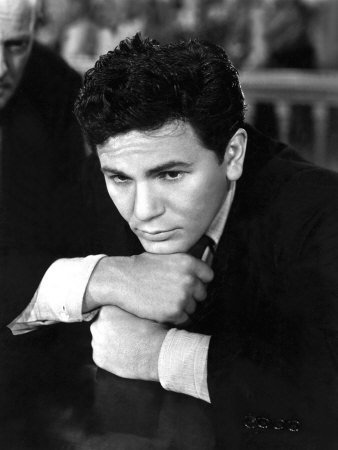
Not Broke But Not Flush: “Dust Be My Destiny”
Jerome Odlum was what you might call a bit of a crusader. He was a newspaper editor in the ‘20s and ‘30s who went on to become a successful novelist and short story writer. Drawing from his newspaper background, most of his books dealt with crime and the corruption of the criminal justice system. His novel Each Dawn I Die caused such a stir that it led to major prison reforms nationwide and was subsequently turned into a popular film. Even if he was a little heavy-handed, he got his point across.
A number of his books and stories went on to become films including, in 1939, Dust Be My Destiny, which focused on the treatment tramps and hobos could expect at the hands of the Law.
Hollywood dealt with the social and political ramifications of the Depression in a number of ways. Some directors played it for laughs, not to make light of the desperate realities, but instead to try and stave off the despair for a few hours. Others, like Wild Bill Wellman, subtly (and sometimes not so much) seemed to call for anarchist rebellion. Still others—as in Gabriel Over the White House and Night Beat—dreamed of a strong fascist leader who would march us all in lockstep out of the mess.
The call in Lewis Seiler’s film version of Dust Be My Destiny is a little quieter and simpler than all that. It asks that the nation return to its founding principles, and that justice be handed down the same to everyone, no matter how much money they have or what part of the train they ride in..
Now in his seventh film, John Garfield stars as Joe Bell. As the film opens, he’s being released from prison after serving a year and a half for a robbery he didn’t commit. He and a friend hop a freight heading anywhere, Joe is understandably bitter after his experience. “Nobody gives breaks to guys like us,” he says. He’d spent much of his life on the move and hopping trains, so he knew how hoboes were treated. And sure enough a railroad bull busts him for vagrancy and sends him to a work farm. There he falls for Mabel (Priscilla Lane), who happens to be the foreman’s step daughter. After getting into a fight with the foreman, Joe and Mabel run away and get married. Moments after becoming newlyweds they become fugitives as well, after learning that the foreman died and an arrest warrant has been issued for Joe. They both know he’s innocent and Mabel encourages him to turn himself in, but he’s previous experiences tells him this would be pointless—he’d still be looking at the gallows.
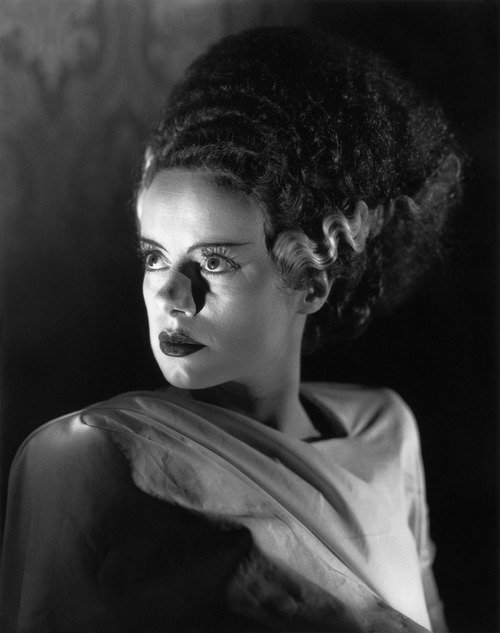
Elsa Lanchester: Catalogue Woman
In the prologue to James Whale’s The Bride of Frankenstein (1935), Elsa Lanchester plays Mary Shelley, sitting and sewing as Byron (Gavin Gordon) and her husband Percy (Douglas Walton) look on. “She is an angel,” Byron says, and Mary rejoins, “You think so?” with a devilish smile. There is a storm going on outside. “You know how lightning alarms me,” she purrs, humorously, for Mary, like Lanchester herself, loves nothing more than a storm. Lanchester, with her Gothic, serrated prettiness, plays this prologue poised on the very edge of camp. “It’s a perfect night for mystery and horror,” she says. “The air itself is filled with monsters.”
“She’s alive! Alive!” cries Colin Clive’s Dr. Frankenstein at the end of this classic horror film, with all of its allegorical insights into being an outsider and all of its stylish humor. We see the Bride’s eyes first in close-up, and when her bandages are taken off, Lanchester stands before us in a flowing white gown with her wavy hair sticking up on end. Does the fabulously queeny Dr. Pretorious (Ernest Thesiger) tease the Bride’s hair like this for her?

US and Israel: Is the ‘Unbreakable Bond’ Finally Breaking?
Israeli President Isaac Herzog added nothing of great value in his speech at the United States Congress on July 19.
His was the typical language. He spoke of a ‘sacred bond’, touted the shared experience between both nations as “unique in scope and quality”, and celebrated the great, common “values that reach across generations”.
But this theatrical language was meant to hide an uncomfortable truth: the relationship between Israel and the US is changing at a fundamental level.
Two days before Herzog’s speech, Israel’s opposition leader and former prime minister, Yair Lapid, declared that “the United States is no longer (Israel’s) closest ally.”
Lapid’s words were a mix of facts and political opportunism.
Lapid and others in his camp are keen on blaming Israeli Prime Minister, Benjamin Netanyahu, for the waning relationship between both countries; or to use more pertinent language, for weakening the ‘sacred’, ‘unbreakable bond’, which has for many years joined the two countries together.

